Rising Global Protests: A Loosely Linked Call for System Change
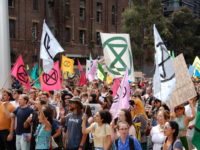
Right now, protesters are mobilising across the globe: from Santiago to Beirut to Toulouse. And these seemingly disparate movements are united around a common theme: rising up against an initial government policy change, followed by a general raging against escalating social inequality.
France’s Yellow Vest movement was a reaction to a proposed rise in fuel taxes. Yet, despite the Macron government scrapping the tax early on, these demonstrations are about to hit their one year anniversary next month.

The street protests in Hong Kong are now in their fifth month. Literally, millions have demonstrated against a proposed extradition bill. However, as the legislation was formally withdrawn this week, protesters have vowed to continue mobilising over wider concerns.
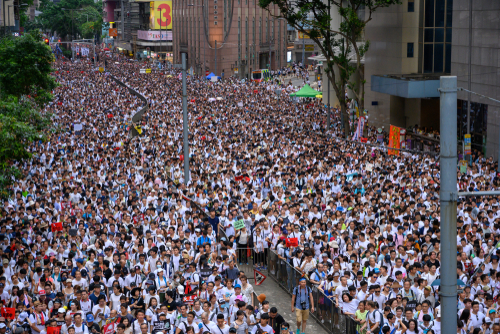
Demonstrators are continuing to take to the streets in Chile, despite the initial impetus to the unrest – a fare hike – having been abolished. And anti-government mobilisers are demonstrating in Lebanon and in Catalonia, there’s been week-long actions.
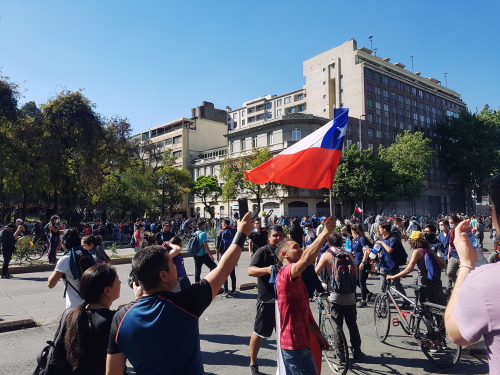
While earlier this month, across Australia and around the globe, Extinction Rebellion activists shutdown parts of cities, calling for action on the climate. And the underlying assertion was that the root cause of the crisis being faced is the imbalance within the current system.
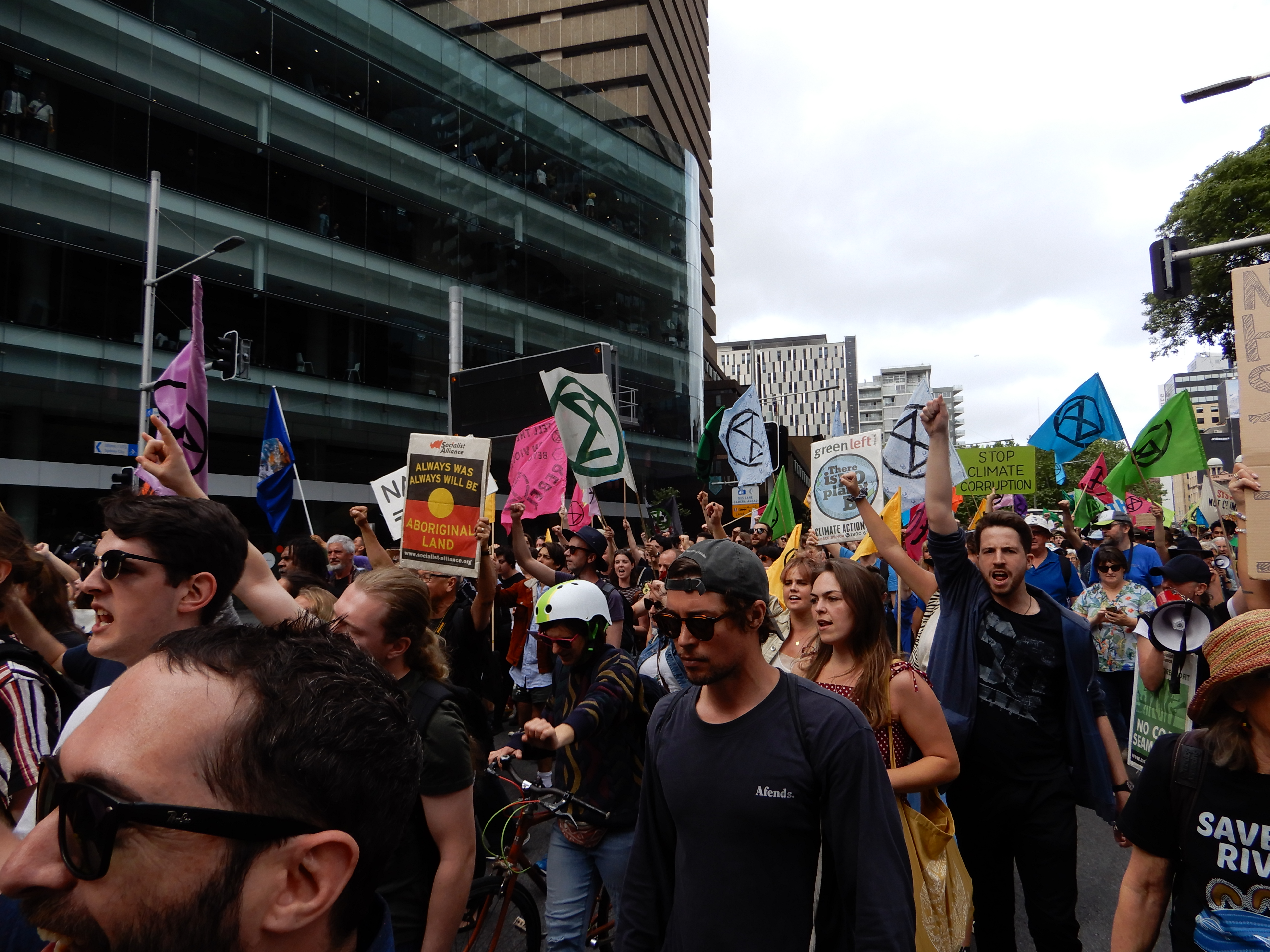
Recognising the hoax
According Dr Nicholas Apoifis, the rising mobilisations around the globe have been caused by the “failure of institutional politics to deliver on certain outcomes, programs and reforms that have been demanded by a significant part of the population – in particular, young people”.
“Also, it’s in counter to the rise of the anti-science dogma that’s associated with parts of the anti-climate change space,” the UNSW senior lecturer in politics continued. “And with the xenophobia and right-wing politics that are on the ascendancy.”
As well, Dr Apoifis points to “the dismantling of the pluralist prejudice dogma” as a major cause of mounting discontent. Pluralist prejudice is the claim that within western democracies there’s more than enough avenues for political expression and therefore, no need for dissent or protest.
“We’re starting to see a dismantling of that,” the academic told Sydney Criminal Lawyers. “The idea that the system offers the solution. The idea that anyone can access it. And all you’ve got to do is join a political party, and then you too can change the laws.”
“Questions are starting to be asked,” he added. “The planet is burning, while rich elites prosper.”
Interconnected causes
Dr Apoifis is the author of 2016’s Anarchy in Athens. It deals with the Athenian anarchist movement. And it’s based on a period in 2011 that he spent “engaging, living and speaking to activists” from the world’s most militant anarchist movement.
One key research finding was that apart from demonstrating discontent to the wider public, the street demonstrations brought the anarchists unity. And another observation was behind the scenes these militants were involved in social work, such as feeding the poor and protecting migrants.
In the context of this continent, what stands out the most to the social movement focused academic is the current wave of Aboriginal and Torres Strait Islander activism.
“They are still fighting in the face of ongoing and brutal attacks from the settler state and its collaborators,” Apoifis emphasised. “But, still they resist. And we are arguably witnessing a resurgence in that activist space.”
Dr Apoifis explained that the First Nations activists have further been demonstrating to the climate movement that the issues of colonisation and the desecration of Indigenous ways of being are intricately intertwined with “the destruction of the planet”.
A diversity of tactics
This month’s week-long Extinction Rebellion spring protests saw rising numbers of Australians willing to block traffic on major thoroughfares in state capitals. And many of these climate activists were willing to be – and were – arrested for the cause.
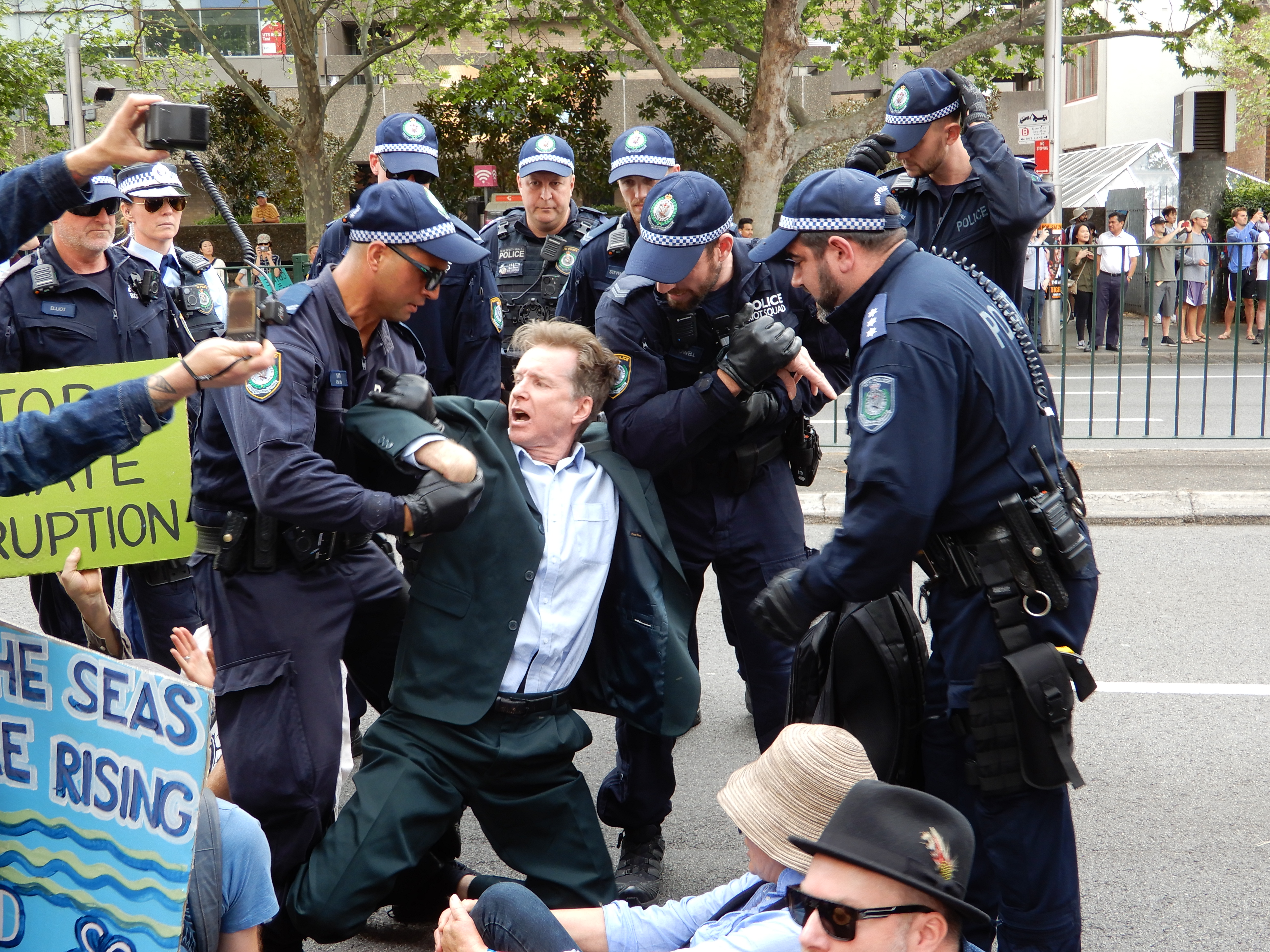
Extinction Rebellion began mobilising on a large scale in London last April. The movement is demanding that governments admit the truth about the climate and ecological crisis the globe is facing, and it uses nonviolent direct action to get its message across.
In Hong Kong, the protest movement has been utilising a range of tactics: both nonviolent and destructive. On one hand, over a million protests have marched peacefully down city streets, while on the other, groups of black-clad activists have been fighting police and vandalising stores.
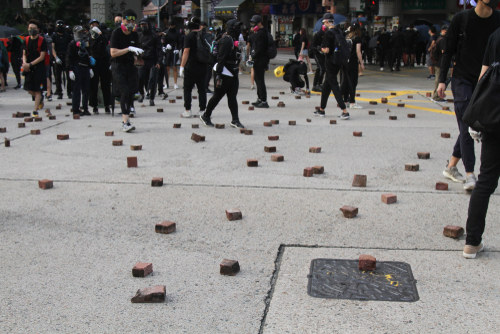
“The evidence in the literature says that sometimes you do need to be destructive,” Dr Apoifis asserted. “Sometimes the liberal, softy-softly approach doesn’t work. And sometimes it does. It depends.”
The politics lecturer said that while some movements “demonise property damage”, this tendency to rule out forms of violence is steeped in privilege. “There is a privilege associated with those who can go up and knowingly get arrested, while others certainly can’t.”
A “diversity of tactics” is what’s being employed by the Hong Kong movement. And Apoifis posits that this is preferred. He added that many who adopt nonviolent action are often operating under the “flawed belief that they need to act in a particular way to get certain people on board”.
The old guard failing
Australian governments have been passing ever-increasing anti-protest laws over recent years. In NSW, there’s been 2015’s ag-gag laws, 2016’s pro-mining amendments, last year’s beefing up of assembling restrictions on Crown land, and currently, the Right to Farm Bill is before parliament.
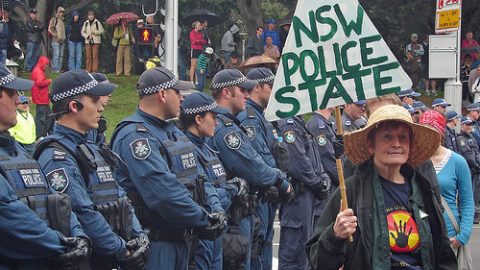
When asked about this trend, Dr Apoifis responded that for First Nations people and other marginalised groups, there’s been “really tough anti-protest legislation for the last two hundred years” in this country, “with swift and brutal consequences”.
However, on turning to the anti-protest legislation passed over the last five years, the academic said there are two ways of looking at it. One is that it will have a chilling effect upon dissent. And those who can’t afford to be arrested, will be discouraged from mobilising.
“On the flip side, there is a more optimistic way of looking at it,” Apoifis concluded. “The criminalising of dissent to this extent is a really heavy, sharp and brutal weapon to use.”
“And one might say, that it’s a weapon used by those desperately trying to cling onto power in the face of serious social change.”







